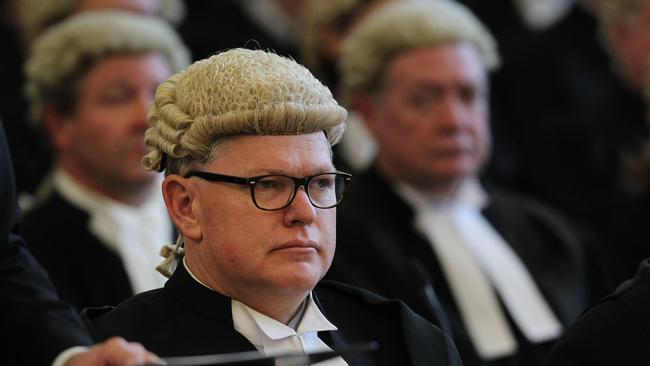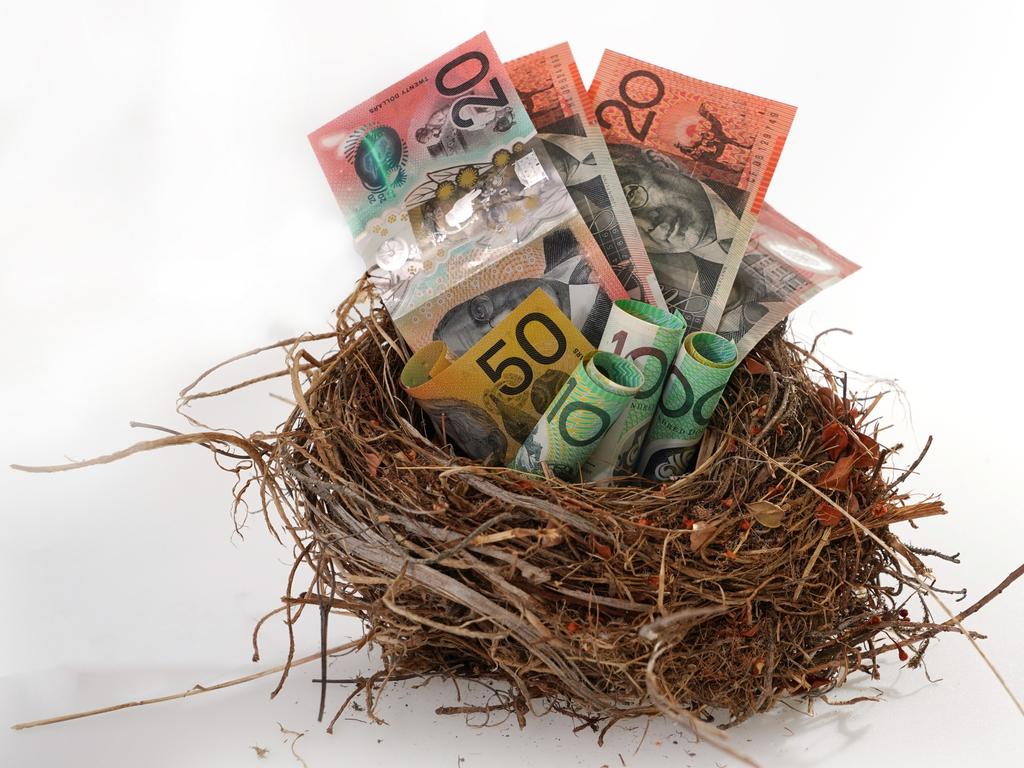Legal fraternity slams ‘problematic’ judicial superannuation tax
A Labor plan slashing judicial retirement funds will compromise the independence of the judiciary and could see a wave of federal judges moving to state courts, the nation’s peak barristers body warns.

A controversial Labor plan to slash judicial retirement funds will compromise the independence of the judiciary and could lead to a wave of federal judges moving to state courts, the nation’s peak barristers body has warned.
The Albanese government’s broken promise to change taxation of nest eggs above $3m has led to a stoush with the legal community.
The Australian Bar Association has told Attorney-General Mark Dreyfus, Jim Chalmers and Assistant Treasurer Stephen Jones it would undermine judicial impartiality.
Under proposed new laws, the tax on investment earnings on superannuation balances of more than $3m doubled to 30 per cent, in a move that Treasury estimates would initially affect 80,000 people.
It is understood that the value of the judicial pension, which can total about $6m over 20 years, would be added to the judge’s super total when determining the balance above the threshold.
ABA president Peter Dunning KC told The Australian it would be “highly problematic” if the government were permitted to axe the remuneration of judges, and said the laws would be “corrosive” to the separation of powers and heavily impact the independence of the judiciary.
“Let me use a simple illustration. High Court judges would be affected by this. Say they come out and make a decision 7-0 that says we should release detainees who cannot be returned to their home country,” he said.
“The government recoils at that and says they are not happy with the High Court. Now, an independent judiciary is free from any censure from the government, other than ministers saying they are not happy. That’s altogether different if the government can change what they are paid.”
Judges who retire after 10 years receive a pension of 60 per cent of the salary of sitting members. For a Federal Court judge, who earns more than $480,000, that totals about $6m over 20 years.
The Australian has obtained a letter Mr Dunning wrote on behalf of the ABA to the Treasurer, Mr Dreyfus and Mr Jones in which he criticised the government for endangering judge’s remuneration.
“Judges – commonwealth, state and territory – stand between the state and the citizen and also quieten controversies between citizens. Judicial officers embody the third and indispensable arm of government in a civil society,” he wrote.
“The attributes of independence, integrity, skill and experience are required to fulfil that difficult task. The Australian judiciary overwhelmingly has those attributes. The acceptance of judicial office nearly always involves material financial sacrifice by the judge from the career the judge leaves behind.
“For a very long time, and for obvious reasons, those qualities, most particularly independence, have been secured by ensuring that the remuneration of judges, and necessarily former judges, cannot be imperilled by the state.”
Changes to judges’ salaries and benefits are typically determined by the independent Commonwealth Remuneration Tribunal.
Mr Dunning indicated that the vast majority of judges came from the bar and questioned why the government failed to consult appropriate stakeholders.
“I note that among other obvious stakeholders, the Australian Bar Association has not been directly engaged with, nor even directly invited to make submissions in relation to this process,” he said.
“That is notwithstanding that Australian barristers overwhelmingly make up the professionals who fill judicial positions throughout Australia.”
In another point raised in his letter, Mr Dunning said the salaries of Federal Court judges were used as a benchmark for those across the states and territories, and the process would be “significantly disrupted” by the proposals.
Mr Dunning told The Australian this issue would “direct judges” to state supreme courts, where the tax would not be imposed on judges’ earnings from superannuation interests.
“There would be real incentive to do that … if you add a consideration that a Supreme Court judge was getting paid better because of the impact of the tax,” he said.
The laws have also been criticised by former members of the judiciary, who have raised concerns they could lead to a situation where High Court judges are forced to hear a matter to which they have a personal financial interest.
Former Federal Court chief justice Michael Black in a Senate hearing last month said there was “no doubt” there could be a constitutional challenge if the laws were passed, and that situation should be avoided.
He also agreed a decision to reduce the remuneration of judges could undermine their independence.
A spokesperson for Mr Dreyfus said taxation issues were “a matter for the Treasurer”. Dr Chalmers did not respond to a request for comment.








To join the conversation, please log in. Don't have an account? Register
Join the conversation, you are commenting as Logout